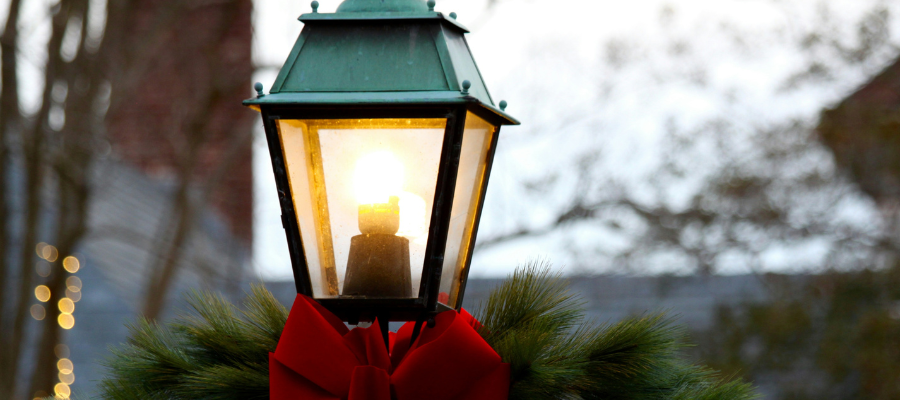Religion that is pure and undefiled before God the Father is this: to visit orphans and widows in their affliction, and to keep oneself unstained from the world.
James 1:27
Then the righteous will answer him, saying, ‘Lord, when did we see you hungry and feed you, or thirsty and give you drink? And when did we see you a stranger and welcome you, or naked and clothe you? And when did we see you sick or in prison and visit you?’ And the King will answer them, ‘Truly, I say to you, as you did it to one of the least of these my brothers, you did it to me.’
Matthew 25:37-40
For the last two millennia, countless anonymous followers of Christ have embraced these two passages and sought to pour out their affection for Jesus on widows, orphans, and “the least of these.” Both teachings are beyond radical, and serve as the foundation of Christianity’s world-transforming “compassion revolution.” And it has been the decentralized, grassroots nature of this movement that has most powerfully impacted cities and nations.
James 1:27 distills “pure religion” into a very basic action plan. There are several scriptures that distill the “law and the prophets” into “Love God” and “Love your neighbor” (Matt. 22:36-40; Gal 5:14, Rom. 13:8), yet this verse drills down to a very practical litmus test.
The validity of our religion is made apparent by our moral conduct and our treatment of the most vulnerable in our society.
In the parable of the sheep and the goats, Jesus drills down even further to a place of profound mystery: Whatever we do or don’t do to the most vulnerable among us directly impacts Jesus. He merged “Love God” and “Love the least of these” into one act of worship: tangibly loving the most vulnerable…is tangibly loving Jesus.
What a precious gift Jesus has given to all who long to express their love and expend their lives for Him. Every day, He welcomes us to pour out our heart’s affection upon Him as He disguises himself in the lives of the vulnerable surrounding us.
* * *
Nearly 27 years ago, my wife and I dove headlong into the compassion revolution when we purchased a home and planted a church in a low-income, high-crime community on the North Shore of Staten Island. It didn’t take long to identify the most vulnerable surrounding us. Psychological orphans and disconnected teens filled our neighborhood.
Challenges too numerous to express here have created environments that make unassisted social, educational, and vocational advancement for many of the young people of our inner cities extremely difficult—and in some cases, nearly impossible.
In 1999, our ministry, Urban Hope, purchased a warehouse in a neighborhood nicknamed Wild Wild West Brighton and Bloody Brighton. At the time, NYC was the murder capital of the nation, and West Brighton had the second highest murder rate in the city. We felt that if Jesus was stationed in Staten Island, this is where He would have set up base camp, too.
It has been breathtaking to experience His passionate heart for this broken and forgotten corner of the “forgotten borough.” It has also been breathtaking to experience the strength and beauty of our neighbors, the “Salt of West Brighton.” They had loved and sacrificially served this community long before we arrived.
* * *
We felt God’s favor and Satan’s hatred from the moment we moved into our neighborhood. The murders and violence spiked as soon as we started services. After a week of fasting and prayer specifically targeted at our local murder epidemic, the murders stopped for two full years. To this day, the murder rate in West Brighton is down 95 percent.
Nevertheless, the healing of families who had been ravaged for generations was a more grueling challenge. As we sought to be the healing hands and heart of Jesus in our neighborhood, we discovered God’s choice servants everywhere we turned.
Take, for example, the dozens of fervently praying grandmothers who raise their grandchildren, great grandchildren, and often many other relatives and neighborhood children. Or the many athletic coaches who devote countless hours to give at-risk teenagers a fighting chance. Or the principals and teachers who play a heroic role in West Brighton, serving as mentors, counselors, social workers, and often surrogate parents to many children.
There are also the community pastors we co-labor with, who are the glue that holds West Brighton together as they work two or three jobs to keep their food pantries and storefront mission churches open. The neighborhood elementary school and church are the most stable institutions in many children’s lives.
Many of our single mothers are among the strongest people I have ever known. They bear a heavy burden, often working ungodly hours and passionately fighting to keep their children from getting sucked into the vortex of “the hood.”
Yet, by far the most beautiful sight in our neighborhood is the hundreds of children who daily rise above the most adverse of situations—the resilient little ones who have seen trouble and trauma that would break strong men. (Watch this video to see what I mean.) Yet, whenever they are provided a safe haven, they shine, smile, laugh, and love with a brilliance that competes with the morning sun.
Pray for West Brighton:
- Pray for the teens from the NYCHA communities on Staten Island, that they would be connected to God, church, mentors, vocational, and educational opportunity.
- Pray for literacy among our young people, as children are statistically at a very high risk for poverty and criminality (90 percent of juvenile offenders are illiterate) if they are not at grade level by 3rd grade.
- Pray for the work of Urban Hope, that our after-school program, summer camp, church, school, and neighborhood partnerships would serve as a life-giving sanctuary for young people in the West Brighton community.
* * *
 Rev. David Beidel is the founder and president of Urban Hope NYC, a Hope for New York affiliate. He has lived in Staten Island most of his life, and in 1992, he and his wife, Rebecca, started New Hope Community Church in their home in a crime-ridden community. David, Rebecca, and their four children continue to faithfully serve there. David is also the author of two books: “Samaria: The Great Omission” and “Saturation: A Strategy for Gospel Immersion.”
Rev. David Beidel is the founder and president of Urban Hope NYC, a Hope for New York affiliate. He has lived in Staten Island most of his life, and in 1992, he and his wife, Rebecca, started New Hope Community Church in their home in a crime-ridden community. David, Rebecca, and their four children continue to faithfully serve there. David is also the author of two books: “Samaria: The Great Omission” and “Saturation: A Strategy for Gospel Immersion.”



